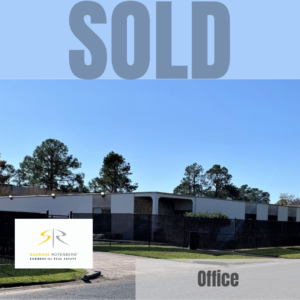Article submitted by Carmen R. Austin, MBA, CCIM, Associate Broker and Retail Specialist for Saurage Rotenberg Commercial Real Estate
Written by Richard Kestenbaum | June 24, 2018
The changes in consumer shopping behavior continue to create upheaval in the business of retail real estate. As certain kinds of space become less valuable or obsolete, the arrangements that landlords and tenants make has had to adapt. I recently sat down with four partners from Goulston & Storrs, a law firm with one of the largest retail real estate practices in the United States, and asked them what they’re seeing in the market right now. All of the partners I spoke with (Nancy Davids, Matt Epstein, Karen O’Malley and David Rabinowitz) have decades of experience in retail real estate deals all over the U.S.
Mixed Use
They report an increase in mixed-use projects. That’s where a large property is used for different purposes that are integrated in one parcel of land. An increasing number of existing retail-only developments are being converted to include offices and residences (both private homes and apartments). New development projects are less about retail-only and more about retail as a part of a live-work-play neighborhood and not a mall. Karen O’Malley told me, “Forward-thinking developers…[are] curating their tenant mix to attract a broad range of consumers.” They are also adding different kinds of retailers that were previously not thought of as belonging in malls like grocery stores, movie theaters and gyms. Those used to be perceived as discrete destinations, where consumers would go and leave without visiting any of the other retailers nearby. Now landlords are finding those tenants are contributors that help bring more people to their property. There’s now an Equinox in the rebuilt Brookfield Place in Manhattan — that could never have happened in the past. The Whole Foods store at Related’s Time Warner Center is one of the chain’s top stores. These changes are landlords’ way of broadening shopping experiences and giving consumers more reasons to come in.
Carmen R. Austin, MBA, CCIM has been a practicing commercial real estate broker since 2001. She is a graduate of the Louisiana State University (LSU) E.J Ourso College of Business and the LSU Flores Masters of Business Administration (MBA) Program with a specialization in Entrepreneurship and Real Estate Finance. Her experience includes past employment as Regional Director of Leasing at Commercial Properties Realty Trust, the for-profit arm of the Baton Rouge Area Foundation. Carmen is a graduate of the Jay W. Levine Leadership Development Academy, Class of 2011, and served as the 2010 President of the Louisiana CCIM Chapter. She currently serves on the National CCIM Institute Board of Directors and the CCIM Institute Education Foundation Board of Directors.
Carmen’s affiliations include Louisiana REALTORS, Greater Baton Rouge Association of Realtors Commercial Investment Division, International Council of Shopping Centers, Commercial Real Estate Women, Certified Commercial Investment Member Institute, National Association of REALTORS, and Urban Land Institute. She is also an active volunteer on the Board of Directors for the Baton Rouge Gallery, LSU MBA Alumni Association, Junior Achievement of Baton Rouge, and the Junior League of Baton Rouge.
Saurage Rotenberg Commercial Real Estate is a member of the Baton Rouge Area Chamber of Commerce (BRAC); the West Baton Rouge Chamber of Commerce; the Baton Rouge Better Business Bureau; the Louisiana Commercial Data Base (LACDB); and the International Council of Shopping Centers (ICSC). Several agents, on an individual basis, are members of the Society of Industrial and Office Realtors® (SIOR), the Certified Commercial Investment Member Institute (CCIM); the National Association of REALTORS® (NAR); and the Greater Baton Rouge Association of REALTORS® Commercial Investment Division (CID).





